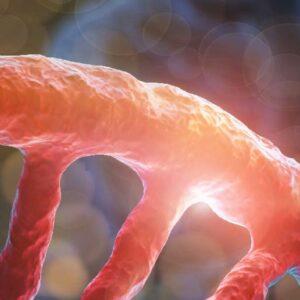Scientific Background
The ForeSENTIA Pan-Cancer Plus panel analyses single nucleotide variants, insertions, deletions, copy number alterations, and rearrangements in 222 genes associated with different types of cancers. It can help identify mutations that can be responsible for cancer development and therapy resistance in solid tumors. The clinical significance of the genes tested has been previously emphasized by professional bodies including NCCN and ESMO. Depending on the type of cancer and the genetic alterations identified, different FDA/EMA-approved drugs as well as eligible clinical trials are available.
Microsatellite instability (MSI) immunotherapy biomarker is also tested in this panel. FDA/EMA-approved immunotherapies are also available such as pembrolizumab for patients with MSI-high status depending on their type of cancer.
This panel also tests for Tumor Mutational Burden (TMB). TMB score can have a prognostic value for patients with any type of solid tumor. Studies have suggested that patients with TMB-H tumors should be considered for immunotherapy regardless of the tumors’ origin. For example, it was previously shown that TMB-H in ovarian cancer and cutaneous melanoma patients has an important role in prognosis. TMB-H status was also found to be associated with improved survival in different types of cancer – including NSCLC, head and neck cancer, melanoma, colorectal and other cancers – when treated with immunotherapy inhibitors. TMB is considered a new emerging tumor-agnostic biomarker. The FDA-approved immunotherapy drug pembrolizumab can be used to treat all solid tumors with TMB-H, regardless of origin.
Recommendations by professional bodies:
ESMO recommends MSI testing via NGS in different types of cancers including colorectal, endometrial, gastric-oesophageal, ovarian, glioblastoma, pancreatic, NSCLC, and melanoma among others (Luchini et al., 2019).
Testing simultaneously for MSI and TMB via NGS can be an essential tool for identifying patients eligible for immunotherapy (Luchini et al., 2019).
References and more information:
• Cao D, Xu H, Xu X, Guo T, Ge W. High tumor mutation burden predicts better efficacy of immunotherapy: a pooled analysis of 103078 cancer patients. Oncoimmunology. 2019 Jun 16;8(9):e1629258. doi: 10.1080/2162402X.2019.1629258. PMID: 31428527; PMCID: PMC6685508.
• Kang K, Xie F, Mao J, Bai Y, Wang X. Significance of Tumor Mutation Burden in Immune Infiltration and Prognosis in Cutaneous Melanoma. Front Oncol. 2020 Sep 18;10:573141. doi: 10.3389/fonc.2020.573141. PMID: 33072607; PMCID: PMC7531222.
• Bi F, Chen Y, Yang Q. Significance of tumor mutation burden combined with immune infiltrates in the progression and prognosis of ovarian cancer. Cancer Cell Int. 2020 Aug 5;20:373. doi: 10.1186/s12935-020-01472-9. PMID: 32774167; PMCID: PMC7405355.
• Rizvi NA, Hellmann MD, Snyder A, Kvistborg P, Makarov V, Havel JJ, Lee W, Yuan J, Wong P, Ho TS, Miller ML, Rekhtman N, Moreira AL, Ibrahim F, Bruggeman C, Gasmi B, Zappasodi R, Maeda Y, Sander C, Garon EB, Merghoub T, Wolchok JD, Schumacher TN, Chan TA. Cancer immunology. Mutational landscape determines sensitivity to PD-1 blockade in non-small cell lung cancer. Science. 2015 Apr 3;348(6230):124-8. doi: 10.1126/science.aaa1348. Epub 2015 Mar 12. PMID: 25765070; PMCID: PMC4993154.
• Samstein RM, Lee CH, Shoushtari AN, Hellmann MD, Shen R, Janjigian YY, Barron DA, Zehir A, Jordan EJ, Omuro A, Kaley TJ, Kendall SM, Motzer RJ, Hakimi AA, Voss MH, Russo P, Rosenberg J, Iyer G, Bochner BH, Bajorin DF, Al-Ahmadie HA, Chaft JE, Rudin CM, Riely GJ, Baxi S, Ho AL, Wong RJ, Pfister DG, Wolchok JD, Barker CA, Gutin PH, Brennan CW, Tabar V, Mellinghoff IK, DeAngelis LM, Ariyan CE, Lee N, Tap WD, Gounder MM, D’Angelo SP, Saltz L, Stadler ZK, Scher HI, Baselga J, Razavi P, Klebanoff CA, Yaeger R, Segal NH, Ku GY, DeMatteo RP, Ladanyi M, Rizvi NA, Berger MF, Riaz N, Solit DB, Chan TA, Morris LGT. Tumor mutational load predicts survival after immunotherapy across multiple cancer types. Nat Genet. 2019 Feb;51(2):202-206. doi: 10.1038/s41588-018-0312-8. Epub 2019 Jan 14. PMID: 30643254; PMCID: PMC6365097.
• Luchini C, Bibeau F, Ligtenberg MJL, Singh N, Nottegar A, Bosse T, Miller R, Riaz N, Douillard JY, Andre F, Scarpa A. ESMO recommendations on microsatellite instability testing for immunotherapy in cancer, and its relationship with PD-1/PD-L1 expression and tumour mutational burden: a systematic review-based approach. Ann Oncol. 2019 Aug 1;30(8):1232-1243. doi: 10.1093/annonc/mdz116. PMID: 31056702.





















